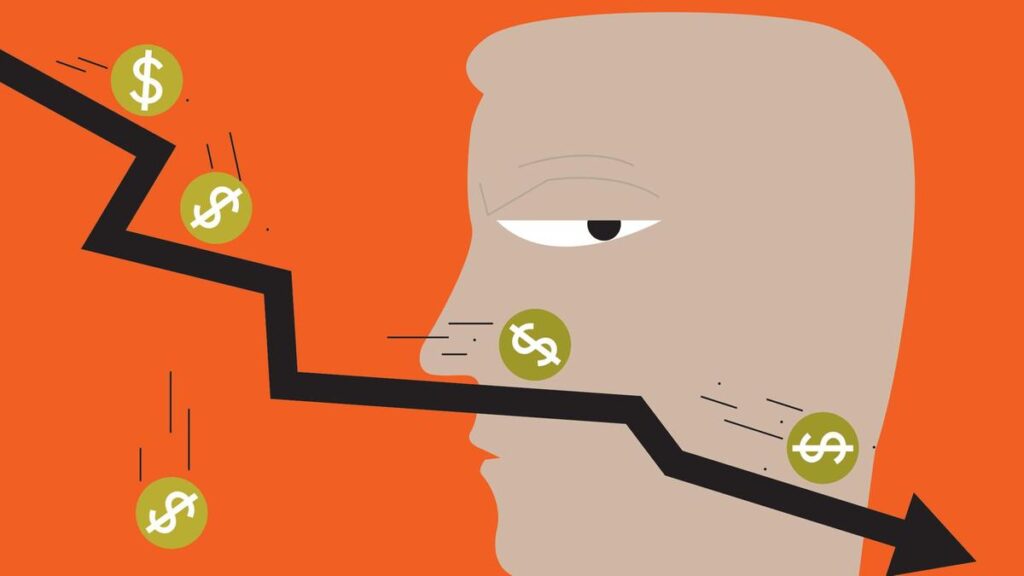It’s the most wonderful time of the year. Or so goes the familiar refrain of the holiday classic that since 1963 has played every Christmas in retail stores, homes, and hearts across the United States. But this happy, idealized tribute to the magic and elation of the season—to “toasting marshmallows,” “caroling in the snow,” “mistle-toeing,” and “glowing hearts,”—misses an important point: That for many Americans, a more accurate description would be that “it’s the most stressful time of the year.”
If there were ever a time when the holidays were simpler and uncomplicated by feelings of the blues, today the good cheer associated with this time of the year often masks feelings of stress, sadness, and depression. (Learn more about treatment for depression at FHE Health.) And, with social, family, and cultural pressures to be happy over the holidays, people run the risk of feeling even guiltier for not living up to expectations.
Don’t allow guilt to magnify a case of the blues. Happiness during the holidays can be harder to come by for a variety of reasons. Below are some factors that can understandably cause a case of the blues, followed by some suggestions for feeling better.
Holiday Factors That Cause People to Feel Down or Stressed

1. End-of-Year Blues – The holidays come at the end of the calendar year when many projects and tasks are expected to be completed. It can feel like a rush to check things off a to-do list, both personally and professionally. Often, too, barriers that may have waylaid progress in a career or one’s personal life can seem more pronounced at the end of the year, triggering impatience, frustration, disappointment, and feelings of self-defeat.
2. No Time for Time Off – The holidays creep up faster and faster every year. Many employees find they have not used their vacation time earlier in the year due to deferring plans because of this unexpected life event or that. Some may lose their vacation days if they don’t use it in time and may be turned down for vacation requests due to lack of business coverage during the holidays. Conversely, one may have used more vacation days than planned due to sickness or other emergencies and thus may be frustrated about not being able to take time off for the holidays to be with family or friends.

3. Finances in the Red – More often than not, people tend to spend more money throughout the year than expected, making the holiday financial budget red rather than green. Meanwhile, gifts cost more, and the dollar does not go as far as it used to; profit sharing and holiday bonuses (which used to be an invaluable source of help for holiday expenditures) are becoming rarer; and requests for donations by nonprofits, social service agencies, or even family members, relentlessly pull at both heartstrings and pocketbooks.
4. Social/Family Pressures – The holidays come with pressure from family, friends, employers, and social groups to gather to celebrate the year. Juggling all of these different activities on a calendar and making sure no one feels slighted can cause anxiety. A person may feel external or internal pressure to host a holiday festivity or meal, which may be fun to coordinate but inherently includes a certain level of stress. For those who have children, making sure kids have a memorable holiday can make parents feel more pressured to make everything just right and impart fun and happy, family traditions.

5. Losses and Nostalgia – The holidays bring up a lot of emotions, in particular when it comes to dealing with the loss of loved ones. Grief becomes more pronounced when someone significant is absent from the holiday festivities. Holiday nostalgia for positive childhood memories can bring warm sentiments. However, it can also bring feelings of loneliness due to natural life progressions and changing circumstances.
6. SAD Time of the Year – “Seasonal affective disorder” (SAD) is a type of depression that starts in the fall and winter and is caused by the change in seasons. In many parts of the country, the holidays come with less sunlight and daylight hours, which increase depression and lethargy. Millions of Americans may suffer from SAD but not know they have the disorder, according to the National Institute of Mental Health.
How to Kick a Case of the Holiday Blues

To get through holiday stress, it’s first important to acknowledge and accept any negative feelings of depression, sadness, or anxiety. The next step is to know that there are an infinite number of ways to lift negative moods and alleviate stress. Here are just a few ways to help turn holiday blues into greater holiday happiness.
1. Therapy – Therapy may help with grief and loss issues. Chronic conditions of depression and anxiety can become worse over the holidays, requiring professional assistance. Therapists are a safe, neutral party trained to listen and provide more clarity on holiday-exacerbated family issues. Therapists can help with individualized treatment plans for stress management. Going to therapy can help with changing negative, distorted thoughts into positive attitudes and uplifting emotions.
2. The New Year – With the winter holidays comes the start of a new year. Rather than dwell on past problems and mistakes, look ahead to January 1 for a brand-new start. Sometimes it can be helpful to journal about the lessons of past mistakes and challenges and use these lessons for inspirational quotes for the next year.

3. Plan a Vacation – Get a head start planning next year’s vacations and scheduling some time off for de-stressing from the holidays. Block out vacation days for the following year with at least some time off every quarter. Look for nice vacation spots or travel destinations. Positive thoughts about relaxation, fun, and sun are proven to boost the mood. Getting more sun in can also help eliminate SAD symptoms.
4. Eat Healthy Snacks – As tempting as it is to partake in holiday treats, keep sweets to a minimum. Sugar may initially bump up a low mood; however, what comes up must come down. Eat healthy snacks such as nuts, fruit, and vegetables that help to curb appetite. This will help in preventing holiday food binges that leave one feeling sluggish and fatigued.

5. Give handmade gifts – If finances are an issue, consider giving handmade gifts or alternative gifts of expression. Taking time on making a gift rather than buying something ready-made often can have more of an emotional impact and meaning. Make a holiday card, roast chestnuts, or write a poem to a loved one.
6. Make new traditions – Social, family, or cultural traditions may be familiar and comforting, but there is nothing wrong with creating new traditions that emphasize being together with loved ones and relaxing versus stressing out with holiday crowds and traffic. Have a holiday spa day rather than a shopping spree. Order from a favorite restaurant rather than cook for a holiday meal. Donate money to a favorite charity rather than throw the annual holiday party.
—————-
This article was provided by Dr. Sachi Ananda, PhD, LMHC, MCAP, who directs a specialized treatment program for first responders, “Shatterproof,” at the national behavioral health provider FHE Health.









